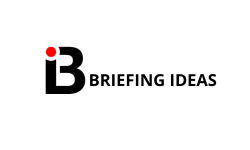Coding is an important skill in today‘s digital world. It offers many chances for career growth and personal improvement. This beginner’s guide to coding in English will help you understand the basics, choose the right programming languages, and find the best resources to get started and succeed in your coding journey.
What is Coding?
Coding, often referred to as programming, is the process of creating instructions for computers to follow. These instructions, written in various programming languages, enable computers to perform specific tasks and solve problems.
The Importance of Learning to Code
● Why Coding Matters
Coding is the pillar of the digital world, powering websites, apps, and software. Learning how to code opens up many opportunities in various fields, such as technology, finance, and healthcare.
● Career Opportunities
Knowing how to code can lead to well-paying jobs in software development, data analysis, and more. There is always a high demand for skilled coders, making it a valuable skill to have.
Here is Beginner’s Guide to Coding:
⒈ Choosing the Right Programming Language
● Popular Programming Languages
- Python: Great for beginners because it’s easy to read and understand.
- JavaScript: Essential for creating websites.
- Java: Widely used in large companies.
- C++: Good for creating software and systems.
- Ruby: Known for its easy-to-read code, perfect for web applications.
● Factors to Consider
- Type of Projects: Choose a language based on what you want to create.
- Community Support: Languages with many users have better resources and help.
- Ease of Learning: Some languages are easier for beginners to learn.
⒉ Getting Started with Coding
● Setting Up Your Workspace
- Text Editors: Tools like VS Code, Sublime Text, and Atom.
- IDEs: Programs like PyCharm, Eclipse, and Visual Studio.
- Version Control: Tools like Git and GitHub to manage changes in your code.
⒊ Basic Concepts to Understand
- Syntax and Semantics: The rules and meaning of the code.
- Variables and Data Types: How to store and use data.
- Control Structures: Using if-else statements, loops, and functions.
- Object-Oriented Programming: Using classes and objects to organize code.
⒋ Learning Resources
Online Courses and Tutorials
- Codecademy: Interactive coding lessons.
- Coursera : courses from universities.
- FreeCodeCamp: Free lessons and certifications.
⒌ Books
- “Python Crash Course” by Eric Matthes
- “JavaScript: The Good Parts” by Douglas Crockford
- “Clean Code” by Robert C. Martin
⒍ Coding Bootcamps
Intensive programs like General Assembly, Flatiron School, and Le Wagon offer hands-on coding experience and job placement help.
⒎ Practicing Coding
● Building Projects
Start with simple projects like to-do lists, calculators, and basic games. Move to more complex projects as you get better.
● Joining Coding Challenges
Websites like HackerRank, LeetCode, and CodeSignal offer challenges to improve your problem-solving skills.
● Contributing to Open Source
Work on open-source projects on GitHub to gain real-world experience and collaborate with other developers.
⒏ Common Mistakes to Avoid
● Overcomplicating Code
Keep your code simple and easy to read. Avoid making it too complicated.
● Ignoring Best Practices
Follow coding standards and best practices to write clean and maintainable code.
● Not Debugging Properly
Learn to use debugging tools and techniques to find and fix errors in your code.
⒐Expert Tips
Advice from Experienced Coders
- Be Consistent: Practice coding regularly to build and keep your skills.
- Learn from Mistakes: Don’t be afraid to make mistakes; they are part of the learning process.
- Get feedback: Ask more experienced developers to review your code and help you improve.
Conclusion
Starting your coding journey can be challenging but very rewarding. This beginner’s guide to coding in English gives you the basics and resources to get started and succeed. Remember, persistence and continuous learning are key to becoming good at coding.
FAQs
What is coding?
Coding is writing instructions for computers to make them perform specific tasks.
Which programming language should I start with?
Python is a great starting language because it’s simple and easy to understand.
How can I practice coding?
You can practice coding by building projects, participating in coding challenges, and contributing to open-source projects.
Are there free resources to learn coding?
Yes, websites like Codecademy, Coursera, edX, and FreeCodeCamp offer free coding lessons and courses.
How long does it take to learn coding?
The time it takes to learn coding varies. With consistent practice, you can learn the basics in a few months.
Do I need a degree to become a coder?
No, many coders are self-taught. However, formal education can help, especially for advanced topics.
What tools do I need to start coding?
You need a computer, a text editor or IDE, and access to online resources. Tools like Git and GitHub are also useful.
Can I learn coding on my own?
Yes, many people successfully learn coding on their own using online resources, books, and tutorials.
What are coding bootcamps?
Coding bootcamps are intensive, short-term training programs that teach coding skills and often provide job placement support.
How important is math in coding?
Basic math is helpful, but you don’t need advanced math skills for most coding tasks. Understanding logic and problem-solving is more important.




